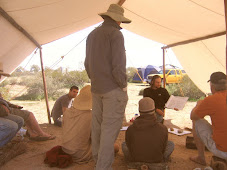The control (15% protein) diet was designed according to the recommendations of the American Heart Association and the U.S. Department of Agriculture. The diet consisted of 55% carbohydrate, with an emphasis on starch-containing foods, 15% protein, and 30% fat (10% monounsaturated, 10% polyunsaturated, and 10% saturated fatty acid). A second diet was designed to consist of 20% carbohydrate, 30% protein, and 50% fat. The saturated fatty acid content of the test diet was ∼10% of total food energy; thus, the majority of the fat was mono- and polyunsaturated.
The authors also describe their low-carb diet as a diet "in which readily digestible starch-containing foods have been de-emphasized."
Okay. Is it just me, or are studies like this almost completely worthless? Yes, it's fascinating that when carbohydrates are lowered in the diet, blood sugar levels normalize -- this a very consistent finding throughout the scientific world. But, why? Why does this happen? What is the mechanism behind it? Is it simply a reduction in carbohydrates that makes the difference? Or could it be a reduction in harmful foods like sugar that does the trick?
In other words, the study is setting itself up for ambiguity. Do the results mean that everyone who is near-diabetic should immediately "cut the carbs?" Or should they "de-emphasize" starch containing foods? Or should they reduce sugar consumption? What is the real problem here?
Well, let's see. Maybe -- just maybe -- we can determine the composition of the diet and dive deeper into these questions. Let's take a look at a nifty table from the study:

Not real helpful is it? Now we know that the participants on the high-carb diet ate 274 grams as "starch" and the rest (114 grams) as sugars of some kind. That tells us absolutely nothing about what foods the participants actually ate. For all we know, they could be eating nothing but waffles and sodas for carbs!
Now, the reason this frustrates me is because certain foods -- namely wheat, trans fats, and sugar/high-fructose corn syrup --- can have profound effects on human metabolism in and of themselves. For example, Dr. William Davis of The Heart Scan Blog recently had this to say about the metabolic effects of wheat (emphasis mine):
A patient would come to the office ... with a blood sugar of 118 mg/dl (in the pre-diabetic range) and the other phenomena of pre-diabetes or metabolic syndrome (high blood pressure, high inflammation/c-reactive protein, low HDL, high triglycerides, small LDL), and the characteristic wheat belly. Eliminate wheat and, within three months, they lose 30 lbs, blood sugar drops to normal, blood pressure drops, triglycerides drop by several hundred milligrams, HDL goes up, small LDL plummets, c-reactive protein drops.
As for trans fats, check out what the authors of this study (done on rats) conclude:
In this study, we observed profound metabolic responses to a low-fat diet enriched with trans-fatty acids that were associated with hyperphagia, increased hepatic and visceral fatness, and diminished whole-body glucose disposal, all hallmarks of metabolic syndrome.
(This particular study, it should be noted, has its own flaws in terms of isolating factors, but the stuff on trans fats seems pretty solid.)
And then there's refined fructose-containing foods, such as high-fructose corn syrup and sugar -- don't get me started!
So would somebody please explain to me why these harmful foods aren't taken into consideration in so much of the mainstream dietary research out there (such as the low-carb study that I began this rant with)? It would seem to me that, due to the significant metabolic effects of these foods (vegetable oil, I haven't forgotten about you!), any dietary study not detailing complete food logs is not even worth a glance. It's great that reducing carbohydrates has a positive effect on the health of diabetics, but would simply reducing wheat or sugar or trans fats have the same effect? If there's a study out there that dives into this molotov cocktail of franken-foods, I'd love to see it.






